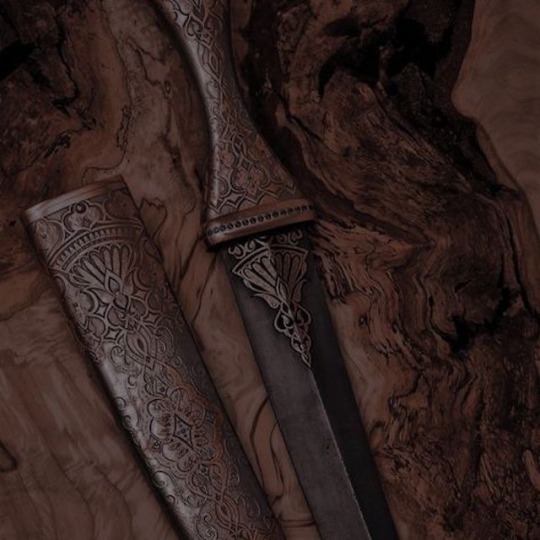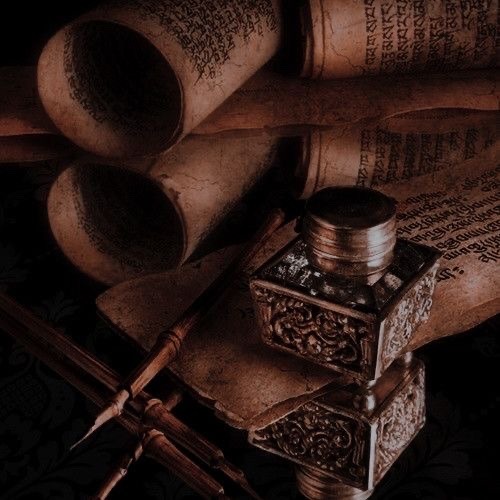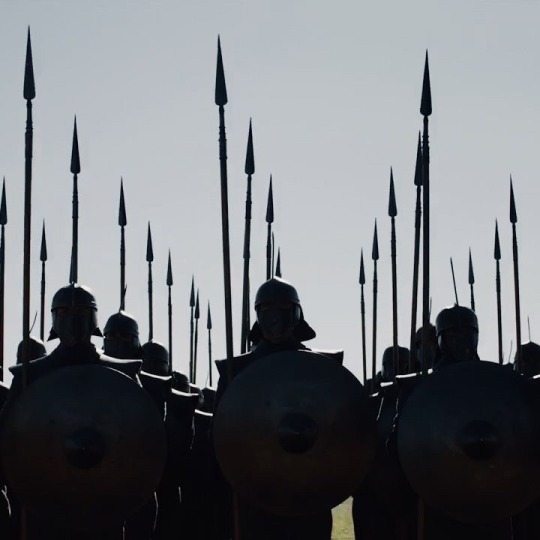#egyptian military
Explore tagged Tumblr posts
Text

Egyptian Special Forces-UAE naval exercise activities
3 notes
·
View notes
Text




2 notes
·
View notes
Text
As with most absolute monarchies the real faces of power were as much the forts as they were the arts:
A good example of how Pharaonic power was actually enforced in real time is the first of the two fortresses mentioned, one of which is more well-known for a very specific set of Papyrus that provides one of the many, many ironies in viewing the histories of old Khemet. It should also be stated that these were the real face of Pharaonic power in its more brutal senses, places built to both provide space for garrisons in barracks and to withstand attacks from Nubian infantry, archers, and cavalry.
This is also the kind of fortresses the Nubians both learned to take and then built their own when they became overlords of Egypt in turn. And this is also a continuous factor in the history of Black Africa as elsewhere in the world, because the world is not a vacuum or a place of separate iron curtains. Other cultures can and do force peoples out of complacency and lead to major military revolutions.
Too, as will be covered tomorrow with the Graeco-Roman world and Black people, the Egyptian influence would expand from the Sudan into the Sahara with the Garamantes, and in both Biblical and Hellenistic writings there was very real awareness of the military power of Kush and of Eastern African states. That, however, is a full around 3,000 years from the span when the first realities of warfare between states in Africa that enter the written record are those of Egyptian and Kushite armies in the deadly dances of death along the Nile and the Nile fortresses.
#lightdancer comments on history#black history month#ancient egypt#african history#kingdom of kush#egyptian military
0 notes
Text
Associated Press: Egypt's Army Tightens Grip
Source:FRS FreeState Political satirist George Carlin had this phrase that voters get who they vote for. So in Egypt’s case they elected with less than a majority a weak President and that’s what they got was a weak President who was unable to take on the military establishment and bring civilian rule to the country. Not as a dictator, but as democratically elected leader. And of course the…
youtube
View On WordPress
0 notes
Text
possibly dumb question but do we ever see near. standing up
#i legitimately can only think of maybe one panel#and it’s right after he makes it rain on the pro-kira mob and even then he’s in that military uniform thing#death note#it just. IT JUST#every time i see near art where he’s standing it feels so Weird and i can’t exactly place why#boy doesn’t stand. he Lounges#i legit wouldn’t be surprised if he got carried around on a fucking litter like an ancient egyptian pharaoh or something#ik and am a fan of the near using crutches/a wheelchair headcanon but am i going insane have we never actually seen him stand up
147 notes
·
View notes
Text

Muhammad Ali Pasha Viceroy of Egypt
Artist: Auguste Couder (French, 1789–1873)
Date: 1841
Medium: OIl on canvas
Collection: Museum of the History of France, Palace of Versailles, Paris, France
Muhammad Ali of Egypt
Muhammad Ali (4 March 1769 – 2 August 1849) was the Ottoman Albanian viceroy and governor who became the de facto ruler of Egypt from 1805 to 1848, widely considered the founder of modern Egypt. At the height of his rule, he controlled Egypt, Sudan, Hejaz, the Levant, Crete and parts of Greece.
He was a military commander in an Albanian Ottoman force sent to recover Egypt from French occupation under Napoleon. Following Napoleon's withdrawal, Muhammad Ali rose to power through a series of political maneuvers, and in 1805 he was named Wāli (governor) of Egypt and gained the rank of Pasha.
As Wāli, Ali attempted to modernize Egypt by instituting dramatic reforms in the military, economic and cultural spheres. He also initiated a violent purge of the Mamluks, consolidating his rule and permanently ending the Mamluk hold over Egypt.
Militarily, Ali recaptured the Arabian territories for the sultan, and conquered Sudan of his own accord. His attempt at suppressing the Greek rebellion failed decisively, however, following an intervention by the European powers at Navarino. In 1831, Ali waged war against the sultan, capturing Syria, crossing into Anatolia and directly threatening Constantinople, but the European powers forced him to retreat. After a failed Ottoman invasion of Syria in 1839, he launched another invasion of the Ottoman Empire in 1840; he defeated the Ottomans again and opened the way towards a capture of Constantinople. Faced with another European intervention, he accepted a brokered peace in 1842 and withdrew from the Levant; in return, he and his descendants were granted hereditary rule over Egypt and Sudan. His dynasty would rule Egypt for over a century, until the revolution of 1952 when King Farouk was overthrown by the Free Officers Movement led by Mohamed Naguib and Gamal Abdel Nasser, establishing the Republic of Egypt.
#portrait#painting#military leader#egyptian history#muhammad ali of egypt#viceroy of egypt#muhamad ali pasha#sitting#three quarter length#costume#turban#ottoman albanian#auguste couder#french painter#sword#french art#fine art#oil on canvas#19th century painting#artwork#european art#19th century art
28 notes
·
View notes
Text
it just breaks my heart that palestinian families are raising such insane amounts of money that less than a year ago would’ve transformed their lives for the better, let them pursue their dream degrees, open businesses, pay off their mortgages and various debts, only to travel just a few kilometres and live in precarious penury in egypt. it is so cruel.
#the economic cost of this is devastating. their entire extended families living outside of Palestine are also losing all of their savings#their retirement funds#money for university and for medical treatment and for housing#and for WHAT#to bribe the fucking egyptian military
39 notes
·
View notes
Text

Lockheed C-130 - Egyptian Air Force - Moscow Vnukovo Airport Russia
#Egyptian Air Force#Lockheed#C-130#Hercules#Cargo plane#transport#military#aircraft#Vnukovo Airport#plane#airplane#aviation
15 notes
·
View notes
Text










“He is Nizahl’s Commander. I should burn with hatred every second spent in his presence.”
The Jasad Heir, Sara Hashem
#fantasy books#sff books#book recs#books#the jasad heir#sara hashem#egypt#arab#egyptian inspired#high fantasy#military fantasy#magic#enemies to lovers#reluctant allies#aesthetic#book aesthetic#jasad heir aesthetic
73 notes
·
View notes
Note
drop the top ten birds list now 💕💕🔫
WELLL IF YOU'RE INSISTING! 10 cool birds in no particular order except the first one who is my favorite animal ever on this planet
BEARDED VULTURE!!!! if i dont see one of these in person someday i just simply wont die. i cant leave this earth without seeing miss lammergeier first
turkey vulture
osprey
black phoebe
eurasian collared-dove
northern cardinal
blue-grey tanager
dark-eyed junco
hoatzin
california scrub-jay
#SOOO many others though.... cinereous vulture? scarlet macaws? military macaws? white-crowned sparrows? egyptian geese?#we live in a beautiful world of so so many birds ......#ive been to some socal deserts a few times and god the birds there? cool as SHIIIT...#cactus wren i miss you cactus wren#asks#birds#ohhh u know what acorn woodpeckers are neat too i loved seeing them at The Mountains#AUUUGHHAAH I LOVE BIRDS <333333
7 notes
·
View notes
Text

All hail the god Seth, who with chaos and violence strengthens order!
𓁣
#history#seth#ancient egypt#mythology#seth animal#ancient history#kemetism#evil#osiris myth#order#ancient egyptian history#ancient kemet#osiris#ra#apophis#egyptology#ancient mythology#military history#ancient egyptian#mythical creatures#egyptian gods#ancient#nickys facts
13 notes
·
View notes
Text

Steel Sword. Mamluk Sultanate of Egypt.
Belonged to Al-Adil Sayf al-Din Tumanbay. 1501 CE.
The Museum of Islamic Art. Cairo
#museum of Islamic art#Egypt#egyptian history#middle eastern history#north africa#the mamluk sultanate#mamluk dynasty#mamluk#military history#early modern period#early modern history
7 notes
·
View notes
Text

NationCats Flag Cards - Egyptian Army (1922-1958)
6 notes
·
View notes
Text
egyptian politics tiktok is actually brain melting
#egyptian politics social media in general but like it's a different genre of ??? on tiktok#the anti-black anti-immigrant attitudes are so fucking insane and concerningly popular#it's either that or MB dick riding or military bootlicking where does it fucking ENDD#i saw a video that was like me when (picture of a country's flag starts talking): (picture of a figure in egyptian history)#like to say “we shut them up” and for the zio entity they put anwar al sadat 😭????#i'm telling you the october 6 propaganda shit makes me feel like im in the twilight zone what are we saying what tf are we saying#the guy who capitulated to american hegemony and established the first diplomatic relations with zionists for a piece of our land#which he couldn't win back entirely in a war? HIM??#if delusional was a country
5 notes
·
View notes
Text
The Pharaohs would be genuinely stumped that one group of Canaanite barbarians overshadowed their grandeur so much:
The other fortress, of course, is not known so much for being proof of how Egyptian imperialism in Nubia worked, as one might expect....but for one small section of shrines and papyrus writings reflecting a garrison in this particular fortress of Israelites. To the Pharaohs Elephantine Island was a garrison to ward the Nile from hostile invaders in the south, and like the Chinese they believed very firmly in 'hiring the barbarian to beat the barbarian' where it could be done.
This is another factor that shaped how wars worked and were fought in this time, that armies were not 'national' as we'd think of them and the multi'national' armies that last well into the 1600s or later are very ancient and very much a common practice everywhere.
#lightdancer comments on history#black history month#jewish history#elephantine island#egyptian history#military history#military history and imperialism
2 notes
·
View notes
Text


Statue of General Ibrahim Pasha at Military Museum Cairo Egypt
#قلعة صلاح الدين الأيوبي#Egyptian National Military Museum#Museum#Bronze#Equestrian#Statue#Ibrahim Pasha of Egypt#Cairo Citadel#Cairo#Egypt
6 notes
·
View notes